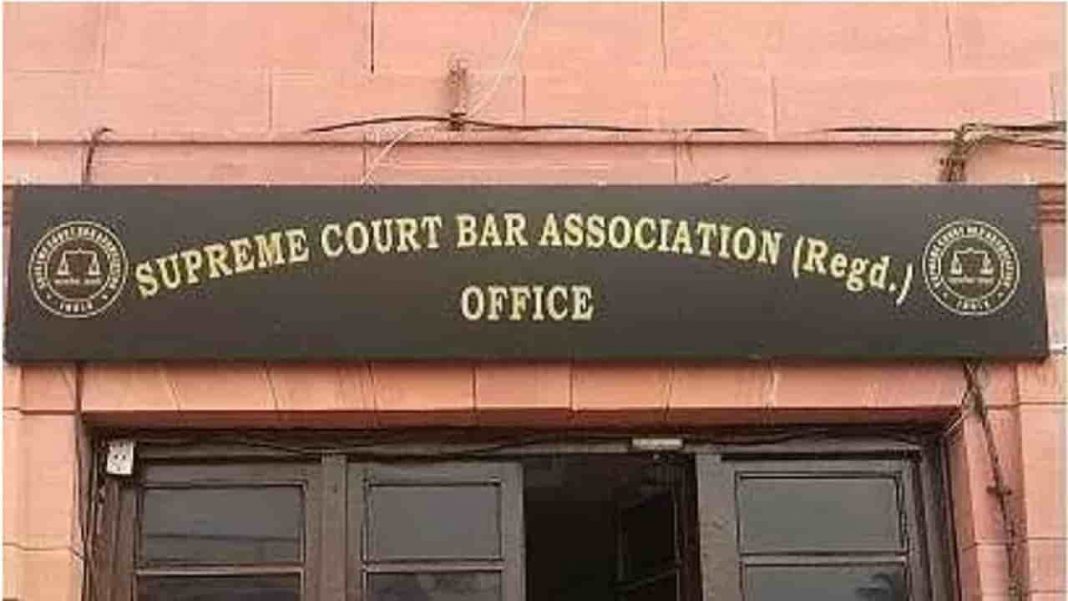The Supreme Court Bar Association (SCBA) on Monday wrote a letter to Chief Justice of India (CJI) Justice N. V. Ramana, requesting him to make some changes in the Standard Operating Procedure (SOP) released by the Secretary General of Supreme Court on Saturday, for resumption of physical hearing of proceedings from September 1.
SCBA President Vikas Singh suggested in the letter that the restrictions related to entering the high-security area of the apex court should be lifted, as the Supreme Court has a distinct architecture, where the lawyers move from one court to another in a spacious, non Air-Conditioned area, having almost nil chances of infection.
The area has a large number of bar rooms, libraries and canteens, where the lawyers can sit, while following the Covid-19 protocol. Further, the high-security area has large, airy corridors, where the lawyers wait for matters, said Mr Singh. The SOP prohibits the entry of lawyers to this area without carrying special passes, which will dissuade the advocates from applying for physical hearing, he added.
“Our clear suggestion is that entry to the high-security area should be permitted by the use of a proximity card and the waiting areas would be the libraries and the lounges, where lawyers will wait on their own after observing covid protocol. If those areas were to get full, then the lawyers can easily wait in the corridor, which is like being in an open space where minimal restrictions are required. The system of issuing special passes should be dispensed with in the SOP,” said Mr Singh.
Regarding the number of people being limited to 20 in every courtroom, the SCBA said it is arbitrary as the size of the courtroom differs substantially. The number of persons permitted to enter the courtroom should be based on the size of a courtroom and the number of 20 can be justified only in the smallest courtrooms.
Moreover, the discretion given to a Judge to adjourn the matter last minute if the number in a particular matter increases more to than 20 people is also unjustified, as this will disrupt a lot of hearings in the court. A decision on such matters should be taken before listing the same. As the matters involving PILs where all States are parties and matters involving a large number of respondents are known to the Registry in advance, they may be listed only through the virtual mode for some time till the full physical hearing is resumed, mentioned the letter.
It said the Supreme Court being the apex court of the country, should be a guiding star for resumption of normal work in courts in the country as the High Courts and Lower Judicial Courts look upon it for such guidance.
“We should resume normal functioning at the earliest to send the right message down the line. The Courts in the country account for a very small aggregation of people and our functioning cannot by any strength of imagination result in the spike in Covid-19 cases. This is because our premises can be a place, where the activities will be controlled completely (by following the Covid-19 protocol),” Mr Singh urged the apex court.
“After an experiment of one week or so, we must start physical hearing to restore normalcy in the Supreme Court. With nine new Judges being sworn in on August 31, we can have 15 courts functioning. If the hearings were to resume on the physical court, the number of cases disposed of will be very large and the huge pendency created during the pandemic will get some respite.
“While the bar is also apprehensive about the third wave, the same will be immediately known either when the mutation of the virus takes place or if the number of cases suddenly start spiking. We can take our call with regard to the manner of the functioning of the Supreme Court at that stage and the said fear does not justify restricting the functioning of the Supreme Court now,” added the SCBA chief.
Also Read:- Supreme Court urged for early hearing on plea challenging Article 370 abrogation
He said the city has opened up completely and eased restrictions amid a fall in its Covid-19 caseload. Public spaces such as malls, cinema halls, marriages, parties, and restaurants have been allowed to open where the covid protocol is difficult to maintain (most of the times people remove their masks while eating, drinking, and socializing).
“In contrast to our premises where lawyers will compulsorily wear masks all the time,” added Mr Singh. He gave the example of Swine Flu outbreak in Delhi, around a decade ago, stating that cases are reported till date.
“Every disease pathogen that has affected people over the last several decades stays in some form or other as it is impossible to fully eradicate them. Similarly, Covid-19 is not going to end completely but we will have to learn to live with it and be proactive.” he added.


